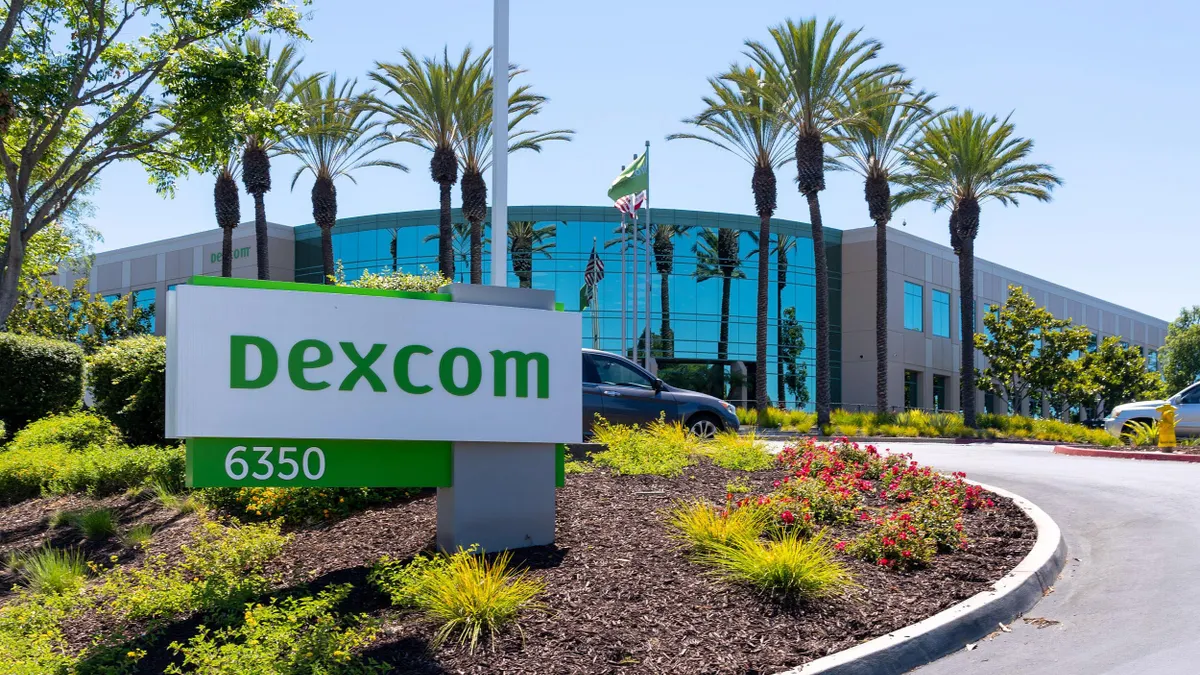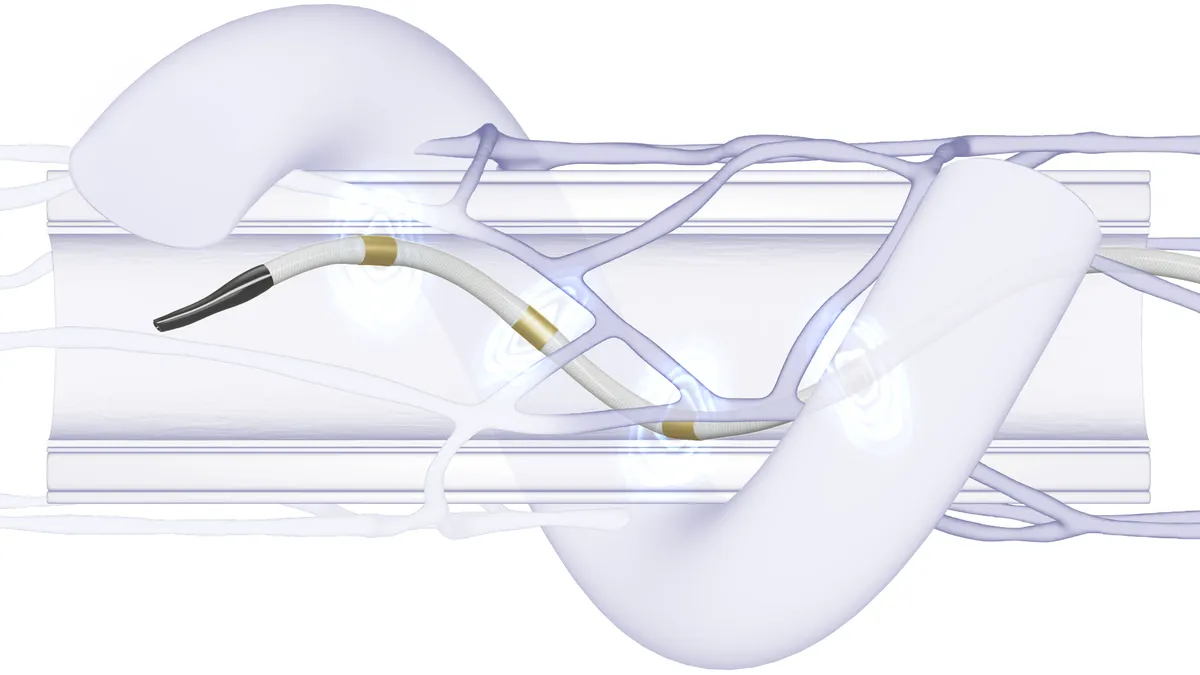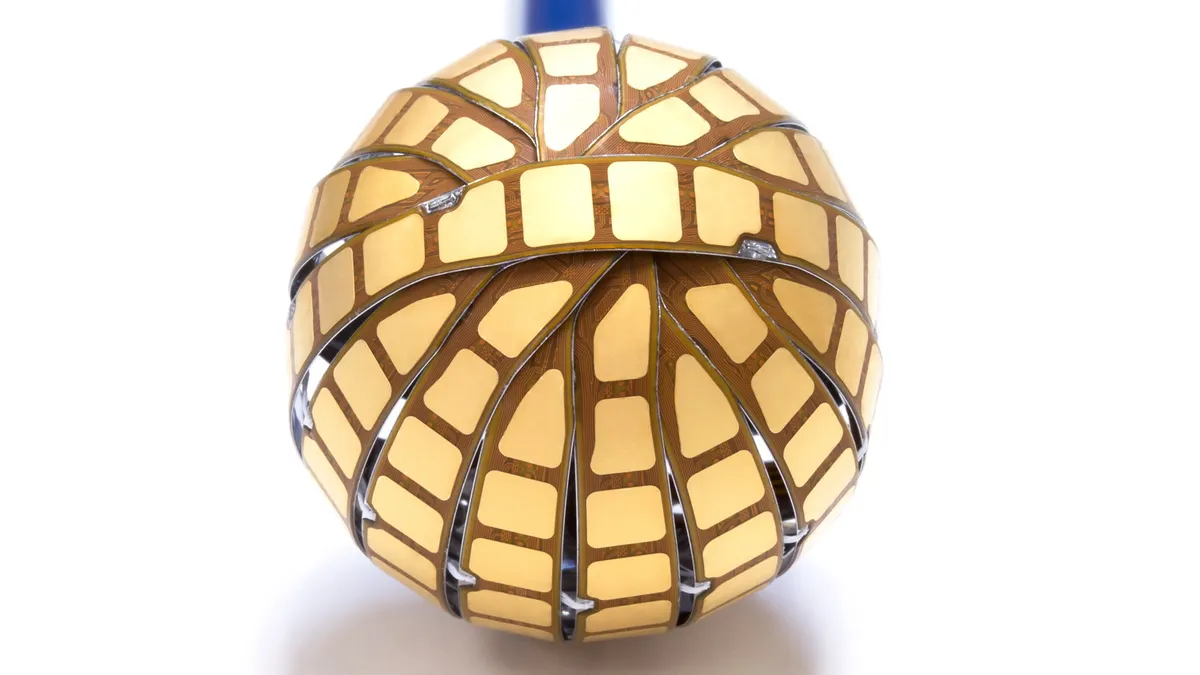The Food and Drug Administration recently approved two hypertension treatments made by Recor and Medtronic, opening a new market that Medtronic has estimated at more than $1 billion. The procedure, called renal denervation, is intended to offer an alternative for patients who have tried medications and lifestyle changes to reduce their blood pressure.
Questions about efficacy and who benefits most from the treatments could be hurdles to adoption as both companies seek insurance coverage.
A long road to approval
Medical device companies have been working for more than a decade to bring a renal denervation treatment to market.
Jason Weidman, Medtronic’s president of coronary and renal denervation, estimated that at one point, the company had more than 40 competitors in renal denervation. Boston Scientific and St. Jude Medical were two companies that pulled out of the space after Medtronic failed to meet the primary endpoint of a randomized controlled trial of its Symplicity Spyral device in 2014, and J&J sold its Cordis business, which had a CE-marked device for renal denervation.
The minimally invasive procedure involves a surgeon guiding a catheter into the renal arteries. From there, they can use pulses of ultrasound or radiofrequency energy to damage some of the sympathetic nerves in the arteries.
The goal of the procedure is to lower a patient’s blood pressure by reducing overactivity in those nerves.
“If you calm the nerves down, it helps reduce the overactivity of the sympathetic nervous system and helps reduce hypertension,” Recor CEO Lara Barghout said in an interview.
The Department of Health and Human Services estimates that nearly 120 million people in the U.S. — about half of all adults — have hypertension, and only about one in four people have it under control.
The current standard of care for treating high blood pressure is medication and lifestyle changes. Multiple types of medicine can be layered into a treatment regimen, including diuretics, beta blockers and ACE inhibitors. But the side effects of these medications can sometimes cause problems for patients, and adherence is worse when there are so many medications to take, Barghout said.
“It's really inspiring to talk to patients who have already received this therapy through the clinical trials, the ones that have uncontrolled resistant hypertension, how it has literally turned their life around,” she said.
Recor’s Paradise system, which the FDA approved in early November, uses ultrasound for ablation, while Medtronic’s Symplicity Spyral system, approved later that month, uses radiofrequency energy.
Both devices are labeled as adjunctive treatments for when medications and lifestyle changes aren’t enough to control patients’ blood pressure.
Barghout described it as a “wide label,” in the sense that it didn’t specify patients must have uncontrolled or resistant hypertension.
“What we want to do is make sure that we're very deliberate in reaching patients that absolutely need it in the first few years. And I think those patients mostly are the ones with uncontrolled resistant hypertension,” Barghout said.
She added that Recor plans to launch a global registry to recruit and monitor patients for at least five years to show the long-term efficacy of Paradise.

Questions about efficacy
An FDA advisory panel in August recommended that the FDA approve Recor’s device but voted against approval of Medtronic’s device. For Recor’s Paradise system, panelists voted unanimously in favor of the device’s safety and 10-2 in favor of its risk-benefit profile, raising questions about the long-term durability of the treatment.
For Medtronic’s Symplicity Spyral system, the panelists voted unanimously for safety but found the benefits did not outweigh the risks by a 6-7 vote. They noted that a recent study of the device missed its primary endpoint, while an earlier study only showed a small benefit.
Keith Allen, surgical director of the structural heart program at Saint Luke’s Mid America Heart Institute in Kansas City, said he voted no on both devices in the panel.
“I didn't think either device from Recor or Medtronic met the level that warranted approval,” he said in an interview. “The data, in my opinion, is not very robust.”
Allen also cautioned that because the devices have different mechanisms for denervating the renal artery, it’s not fair to assume that because one device works, the other does as well.
“The preponderance of the data would suggest that if there is a benefit for renal denervation with regard to reducing blood pressure, it’s in my opinion, marginal at best,” Allen said. “And while the procedure is low risk, whether it is worthwhile for a patient to have the invasive procedure is going to have to be between the provider and the patient.”
Allen said he would consider renal denervation as an option if a patient continued to have high blood pressure after being on a good medical regimen.
“My concern is the data is such that some patients, they were only on one medication. To me, that's not medically resistant hypertension, and I'm concerned that doctors may use this product in place of good medical care, and I don't think invasive procedures should ever replace a pill or an easy medication.”

Market estimates
Medtronic last estimated the value of the market for renal denervation at $500 million in 2026, growing to a range of from $2 billion to $3 billion by 2030.
The company has not reiterated those estimates since it shared its clinical trial results in late 2022, BTIG analyst Ryan Zimmerman said.
“Even though it got approved, because of the nature of the data, there were these lingering questions about whether the pathway to reimbursement would be more challenging because it wasn't a home run,” he said.
When asked about market size, Medtronic’s Weidman said that “about 1% penetration of the market would yield a market size of over a billion dollars.”
“The ultimate possibility is quite large,” Weidman said. “How quickly we ramp up to that is TBD and is going to be determined on a lot of these factors like reimbursement, but we’re confident that this is going to be a good market for Medtronic.”
RBC Capital Markets analyst Shagun Singh estimated that the U.S. market would be split 80-20 between Medtronic and Recor. She thinks that even though Recor received better feedback from the FDA panel, Medtronic will take the leading share because of marketing and the fact that the company has “invested a whole lot for 10 years in this program.”
Currently, Recor and Medtronic are the only competitors in the U.S. market, although Barghout expects that will change.
“I think the space is so prime that there will be more competing devices in the future as well. That's our expectation,” Barghout said. “And I think the patient population is large enough for several competitors to be in the market.”
Future of insurance coverage
Questions about the data also factor into insurance coverage.
Weidman said Medtronic will start commercialization “immediately.” The company did its first procedure in late November and plans to start the rollout at sites that participated in its clinical trial.
“We're working with [the Centers for Medicare and Medicaid Services] to try to determine what the most appropriate path is in order to gain coverage. Typically, with a new therapy like this, it takes about 12 months or so,” Weidman said.
Singh said the company is pursuing Medicare’s New Technology Add-On Payments for inpatient coverage and Transitional Pass-Through Payments for outpatient coverage because it has a breakthrough device designation.
Medtronic has an established sales channel through its coronary business and a therapy development field team to support hypertension programs, according to Weidman.
In Europe, where Medtronic’s device has been on the market since 2013, Weidman said reimbursement has been limited because the European Society of Cardiology’s guidelines state that renal denervation should only be used in a clinical trial setting. When the ESC set those guidelines in 2018, it recommended waiting until further evidence on the devices’ safety and efficacy becomes available.
“Until those guidelines are updated, which we don't expect for another year or so, that's obviously going to hold back some usage,” he said.
Recor announced its first procedures in early November. CEO Barghout said the company is going through the process of gaining coverage as a breakthrough device.
“So it does take a while to get to full coverage,” Barghout said. “But in the meantime, there are bridge codes, as we call them, that can help hospitals in the process of treating patients.”
She added that she hopes to get to widespread use next year.
“We're marching on that journey, and we're very confident that we're going to get there,” said Barghout.




















